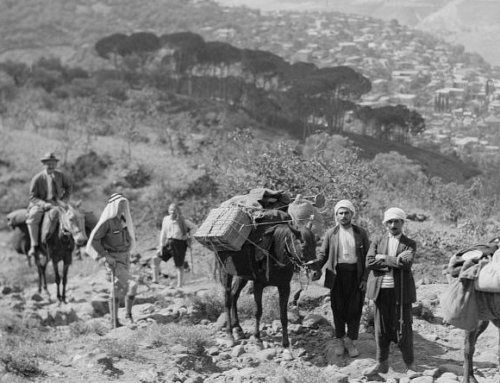Today marks what would have been Mother Teresa’s 105th birthday. Rather than muse on what she might have wanted, here’s a list of some of her favorite gifts, recounted at her 1979 Nobel Lecture (video) for all the world to hear:
Cigarette Money: “The other day I received 15 dollars from a man who has been on his back for twenty years, and the only part that he can move is his right hand. And the only companion that he enjoys is smoking. And he said to me: I do not smoke for one week, and I send you this money. It must have been a terrible sacrifice for him, but see how beautiful, how he shared, and with that money I bought bread and I gave to those who are hungry with a joy on both sides, he was giving and the poor were receiving. This is something that you and I—it is a gift of God to us to be able to share our love with others.”
A Neighbour’s Sugar: “Some time ago in Calcutta we had great difficulty in getting sugar, and I don’t know how the word got around to the children, and a little boy of four years old, Hindu boy, went home and told his parents: I will not eat sugar for three days, I will give my sugar to Mother Teresa for her children. After three days his father and mother brought him to our home. I had never met them before, and this little one could scarcely pronounce my name, but he knew exactly what he had come to do. He knew that he wanted to share his love.”
Your Children’s Dinner: “I had the most extraordinary experience with a Hindu family who had eight children. A gentleman came to our house and said: Mother Teresa, there is a family with eight children—they had not eaten for so long—do something. So I took some rice and I went there immediately. And I saw the children, their eyes shining with hunger. I don’t know if you have ever seen hunger. But I have seen it very often. And [the mother] took the rice, she divided the rice, and she went out. When she came back I asked her—where did you go, what did you do? And she gave me a very simple answer: They are hungry also. What struck me most was that she knew—and who are they? a Muslim family—and she knew. I didn’t bring more rice that evening because I wanted them to enjoy the joy of sharing. But there were those children, radiating joy, sharing the joy with their mother because she had the love to give. And you see this is where love begins, at home.”
Smiles (and Supplications): “And so let us always meet each other with a smile, for the smile is the beginning of love, and once we begin to love each other naturally we want to do something. So you pray for our Sisters and for me and for our Brothers, and for our Co-Workers that are around the world. That we may remain faithful to the gift of God, to love Him and serve Him in the poor together with you.”
What does every story on this list have in common? Again, Mother isn’t afraid to spell it out for us:
“And we read that in the Gospel very clearly—love as I have loved you—as I love you—as the Father has loved me, I love you—and the harder the Father loved him, he gave him to us, and how much we love one another, we, too, must give to each other until it hurts. It is not enough for us to say: I love God, but I do not love my neighbour. St. John says you are a liar if you say you love God and you don’t love your neighbour. How can you love God whom you do not see, if you do not love your neighbour whom you see, whom you touch, with whom you live. And so this is very important for us to realise that love, to be true, has to hurt. It hurt Jesus to love us, it hurt him. And to make sure we remember his great love he made himself the bread of life to satisfy our hunger for his love.”
It is striking how little Mother Teresa’s language changes, even for a Nobel Lecture, before a body of the world’s sophisticated (and secular). Rather than pad her paragraphs with legalese and pleasantries, she was content to simply present the Gospel, echoing the saints down the centuries. This Gospel simplicity stems from magnanimity in its greatest sense, and not myopia. In the words of one account:
“Men who achieve greatness do not work more complexly than the average man, but more simply . . . . In dealing with complex problems, with the simplicity that is natural to him he goes directly to the point, unaffected by the confusion of details in which another man would have lost himself.”
Aided by the inspiration of Mother Teresa’s life (and by her intercession), let us give till it hurts. While it may demand material sacrifice, may we proclaim (and so hand on) the one thing we have worth possessing: the love of Christ Himself, given us through the Gospel. We have nothing greater to offer.
✠
Image: Mother Teresa Giving Speech







